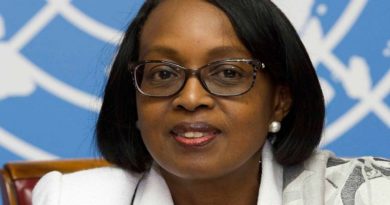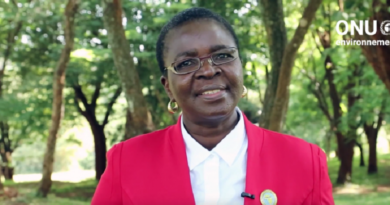Bonn talks: Nations present road-map on enhancing climate plans by 2020
Front-runner countries and civil society representatives presented a concrete road-map of how they are enhancing climate plans by 2020 in an attempt to push other states to commit to doing the same at the upcoming UN Climate negotiations (COP24) that will be held in Katowice, Poland.
This came during an event organized on the sidelines of the intercessional UN climate negotiations session in Bonn, Germany.
The negotiations underway in the German city have witnessed the first meeting of the Talanoa Dialogue launched by the Fijian Presidency of COP23 to spur an outcome for enhanced ambition at the end of this year at COP24.
This year 2018 can make it or break it for climate change. This year, the main pillar of the accord the ratchet up mechanism of the Paris Agreement passes through its first test. Countries need to send a clear signal in COP24 that they will enhance their Nationally Determined Contributions (NDCs) by 2020 if the goal to keep warming below 1.5C is to be reached.
Angeline Heine, National Energy Planner, Ministry of Resources & Development, Republic of the Marshall Islands:“As the Paris Agreement requires, every country must update their targets every five years and we agreed to come back to the table in 2020 to do just that. If we are to keep the goals of the Paris Agreement alive then every country must step up their ambition, and the Talanoa Dialogue provides us a unique opportunity to understand how to do just that.”
“The Marshall Islands is committed to leading by example. We are already working on a new and more ambitious NDC, informed by a transformational 2050 Strategy that will set us on a clear path to net zero emissions.”
“Like us, every country should now be doing the hard work back home to assess what is possible, with a particular eye to the UN Secretary-General’s Climate Summit in September 2019 which must focus on raising ambition of NDCs and production of 2050 decarbonization strategies by all countries.”
Stephanie Lee Special Advisor on Climate Change, Ministry of Foreign Affairs & New Zealand said “One of my take homes from Talanoa was how great it was to hear stories of ambitious climate action and comprehensive policy-making coming from across the spectrum of parties and non-state actors. The process validated the efforts, perhaps even celebrated them. I believe this kind of dynamic is really important to inspiring greater action and ambition. We know the gap between where we are and where we need to be is stark. But visibility and positive reinforcement of what is already happening can provide new ideas and inspire greater effort.
In New Zealand the effort now is on developing policies both to ensure that we meet our target, and to set New Zealand on a long-term trajectory. We see the future as one of transformational change, moving to an economy that is sustainable, inclusive and productive. The concept of a just, well-managed transition is at the heart of this, and is the focus of a significant work programme that reaches across government including into our economic strategy. Why I mention this in terms of achieving ambitious commitments, is that without a just transition that brings people and business along with it, the political consent environment for ambition won’t be sustainable.
A major focus for New Zealand policy makers this year is to develop a Zero Carbon Act to set us on the path to a low emissions and climate resilient future. The objective is to set a 2050 target which is consistent with the IPCC’s findings and with the Paris Agreement objectives, and demonstrates that we are taking the lead as a developed country. We’re also working on long-term low emission pathways which will inform the communication or update of our NDC is 2020, in line with the Paris Agreement. Having a clear eye on the long term target can help countries genuinely assess their 2025 or 2030 target to see if they are in line with the long term transition pathway.
Rolf Smeets Director of Global Public & Government Affairs Philips Lighting: “Energy efficiency offers significant potential, making it an indispensable component of all NDC’s. All sectors combined (appliances, buildings, industry and transport), energy efficiency can contribute to at least half of the mitigation commitment of all countries that signed the Paris Agreement. The global transition to LED lighting alone will bring an annual reduction in carbon emissions of 1400 megaton and reduce energy bills by over 270 billion Euro.”
Marcel Beukeboom, Climate Envoy, Kingdom of the Netherlands: “The science is clear: we need to get into higher gear to reach Paris goals and we need to have the courage to go beyond traditional politics. Meeting in the middle is no option this time” –
Senator Loren Lagarda Chief of Delegation – Philippines: “A low carbon economy is critical to reaching inclusive development goals and reducing climate vulnerability. We need to use tools we already have by fostering truly competitive markets that can deliver more affordable, secure, and more reliable renewable power for all.”
Paula Caballero Global Director Climate – World Resources Institute: “The Talanoa Dialogue is beginning to lay the groundwork for the constructive political discourse that we need leading up to the UN climate summit in Poland. At the UN summit, countries need to send a clear signal that they will enhance their national climate plans by 2020. We are looking to the Polish presidency to demonstrate leadership by rallying countries towards achieving this outcome which will propel the world towards a much safer world.”



